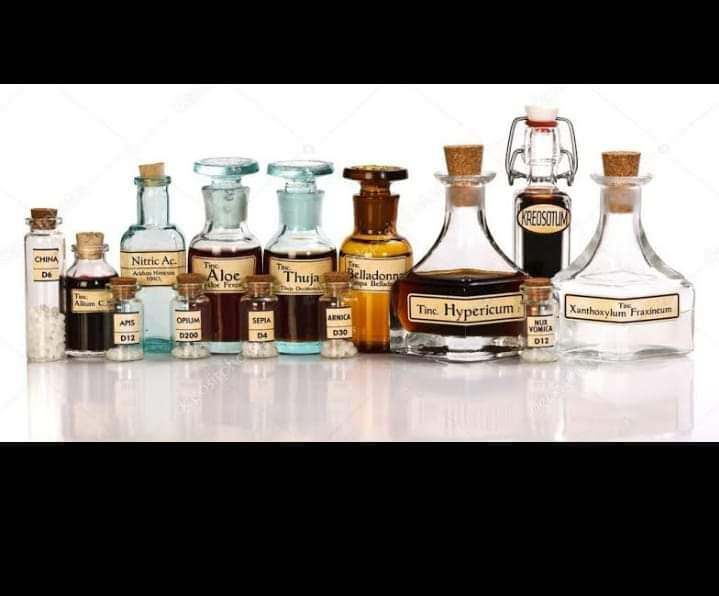Calcarea Carb are mostly at par with each other. However, it remains to be seen which medicine suits who depending on the constitutional make of the person. Those patients with high intake of sweets in their diet, excessive sweating, sensitivity towards heat, and dislike towards bathing are the best candidates for administering Sulphur for treating lipoma.
Belladonna: Though lipoma is usually painless, at times it can be painful too. In such situations, the pain is aggravated by touching the lump. Belladonna not only helps in subsiding the pain but also in dissolving the lump fully.
Thuja: This homeopathy medicine of lipoma helps in dissolving any fatty lumps developing anywhere in the body. In case the patient suffers from high cholesterol, then this is the best medicine to be administered.
HOMOEOPATHY FOR DELIRIUM

Dr. KS. Gopi
Former Professor, Govt. Homeopathic medical…
Delirium is a sudden change in a person’s mental function, which includes their way of thinking and their behavior or level of consciousness. This change often affects memory and concentration.
Delirium can occur as a result of aging , alcohol withdrawal, certain medications, and underlying medical conditions.
Five to fifteen percent of all patients in medical and surgical impatient units are estimated to develop delirium at some time in their lives. This percentage is higher in postoperative patients.
Types of delirium
Doctors diagnose people with one of three types of delirium , which have different symptoms. The three types are:
· Hypoactive delirium: People may feel tired or depressed or move slower than normal.
· Hyperactive delirium: People may feel restless, agitated, or aggressive.
· Mixed delirium: People alternate between hypoactive and hyperactive states. The person may quickly switch back and forth from hyperactive to hypoactive states.
Symptoms
Signs and symptoms of delirium usually begin over a few hours or a few days. They often fluctuate throughout the day, and there may be periods of no symptoms. Symptoms tend to be worse during the night when it is dark and things look less familiar. Some people who have delirium do not experience any physical symptoms.
Primary signs and symptoms include those below:
Reduced awareness of the environment
This may result in:
· An inability to stay focused on a topic or switch topics
· Getting stuck on an idea rather than responding to questions or conversation
· Being easily distracted by unimportant things.
· Being withdrawn, with little or no activity or little response to the environment.
Poor thinking skills (cognitive impairment )
This may appear as:
· Poor memory, particularly of recent events.
· Disorientation-for example, not knowing where you are or who are you.
· Difficulty speaking or recalling words.
· Rambling or nonsense speech.
· Trouble understanding speech.
· Difficulty reading or writing.
Behavior changes
This may include:
· Seeing things that don’t exist (hallucinations ).
· Restlessness, agitation, or combative behavior.
· Calling out, moaning, or making other sounds.
· Being quite and withdrawn-especially in older adults.
· Slowed movement or lethargy.
· Disturbed sleep habits.
· Reversal of night-day-wake cycle.
Emotional disturbances
· Anxiety, fear or paranoia
· Depression
· Irritability or anger
· A sense of feeling elated (euphoria)
· Apathy
· Rapid or unpredictable mood shifts
· Personality changes
Causes
Delirium occurs when the normal sending and receiving of signals in the brain become impaired. This impairment is most likely caused by a combination of factors that make the brain vulnerable and trigger a malfunction in brain activity.
Delirium may have a single cause or more than one cause, such as a combination of a medical condition and drug toxicity. Sometimes no cause can be identified. Possible causes include:
· Certain medications or drug toxicity
· Alcohol or drug intoxication or withdrawal
· A medical condition ,such as a stroke, heart attack, worsening lung or liver disease, or an injury from a fall
· Metabolic imbalances, such as low sodium or low calcium
· Severe chronic or terminal illness
· Fever and acute infection, particularly in children
· Urinary tract infection, pneumonia or the flu, especially in older adults
· Exposure to a toxin, such as carbon dioxide, cyanide or other poisons
· Malnutrition or dehydration
· Sleep deprivation or severe emotional distress
· Pain
· Surgery or other medical procedures that include anesthesia
Several medications or combination of drugs can trigger delirium, including some types of:
· Pain drugs
· Sleep medications
· Medications for mood disorders, such as anxiety and depression
· Allergy medications (antihistamines)
· Asthma medications
· Steroid medications called corticosteroids
· Parkinson’s disease drugs
· Drugs for treating spasms or convulsions
Risk factors
Any condition that results in a hospital stay, especially in intensive care or after surgery, increases the risk of delirium, as does being a resident in a nursing home. Delirium is more common in older adults.
Examples of other conditions that increase the risk of delirium include:
· Brain disorders such as dementia, stroke, or Parkinson’s disease
· Previous delirium episodes
· Visual or hearing impairment
· The presence of multiple medical problems
Prevention
The most successful approach to preventing delirium is to target risk factors that might trigger an episode. Hospital environments present a special challenge-frequent room changes, invasive procedures, loud noises, poor lightening, and lack of natural light and sleep can worsen confusion.
Evidence indicates that certain strategies- promoting good sleep habits, helping the person remain calm and well- oriented, and helping prevent medical problems or other complications- can help prevent or reduce the severity of delirium.
HOMOEOPATHIC REMEDIES
Homoeopathy today is a rapidly growing system and is being practiced all over the world. It strength lies in its evident effectiveness as it takes a holistic approach towards the sick individual through promotion of inner balance at mental, emotional, spiritual and physical levels. When delirium is concerned there are many effective medicines available in Homoeopathy , but the selection depends upon the individuality of the patient , considering mental and physical symptoms.
BELLADONNA: Violent delirium, frightful images, furious, rages, bites, strikes. Hallucinations, sees monsters, hideous faces. Cannot bear light. Delirium with blood shot eyes. Head is hot, but extremities are cold. Delirium during sleep.
HYOSCYAMUS NIGER: Mild type of delirium with no violence. Delirium with attempt to run away. Muttering delirium. Low speech with constant carphologia, deep stupor. Delirium from accusations, insults, or jealousy and suspicion. Sings obscene songs. Talks vulgar.
STRAMONIUM: Delirium with desire to escape. Laughs incessantly without any cause. Sings and claps hands. Appears to be talking to invisible persons and souls. Face red, bloated hot, circumscribed redness of cheeks. Eyes wide open, pupils dilated.
ARNICA MONTANA: Muttering delirium. Delirium , with talk about death, raves at night, springs out of bed with great heat.
AGARICUS MUSCARIUS: Delirium characterized by makes verses, singing, shouting and muttering, rhymes and prophesies. Although excited he is sad.
VERATRUM ALBUM: Delirium with violence, loquacity, or lewdness during pain. Cursing , howling all night. Delusions of impending misfortunes.
VERATRUM VIRIDE: Delirium during child birth septic fever. Delirium, furious, screams, howls, strikes incessant muttering. Loquacity with exaltation of ideas. Suspicious nature.






















